Abstract
The fluxes of sodium, chloride and bicarbonate across endothelium plus stroma and then stroma alone were measured in the direction from lens-side to tear-side in rabbit and human corneas in vitro, in order to measure passive permeabilities. The results were used to calculate the permeability of the endothelium. Hodgkin's equation (1951) was then used to calculate the partial electrical conductivity of each ion crossing the endothelium. The summated electrical conductivities of sodium, chloride and bicarbonate were equal to 89 +/- 8% of the measured electrical conductivity, suggesting that the ions diffuse independently across the endothelium in the direction lens-side to tear-side. Stereological analysis of the intercellular spaces supports the idea that the ions permeate through this route and that the physical shape of the spaces determines almost entirely the permeability of the endothelial layer. Trans-endothelial sodium and chloride permeabilities are nearly equal, which may be explained by supposing the intercellular spaces include a cation exchanger of fixed negative charge capacity around 60 m-equiv l.-1 intercellular fluid.
Full text
PDF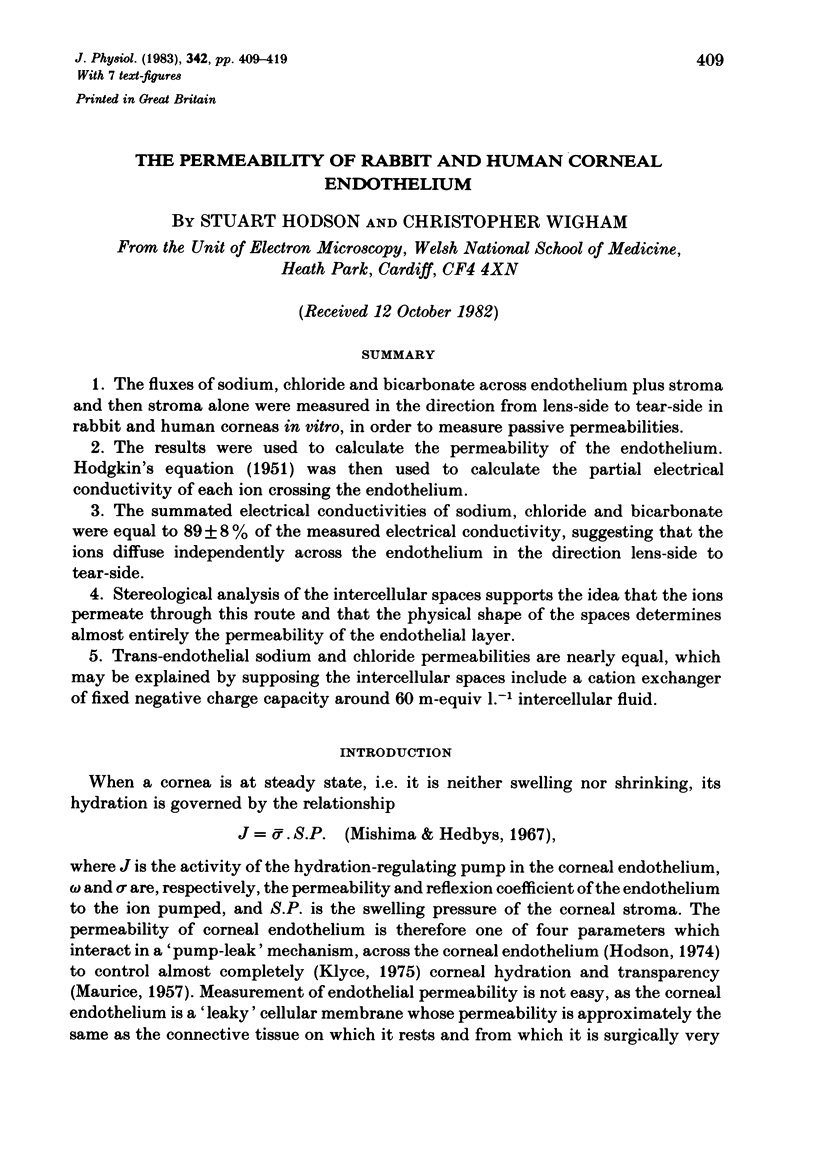
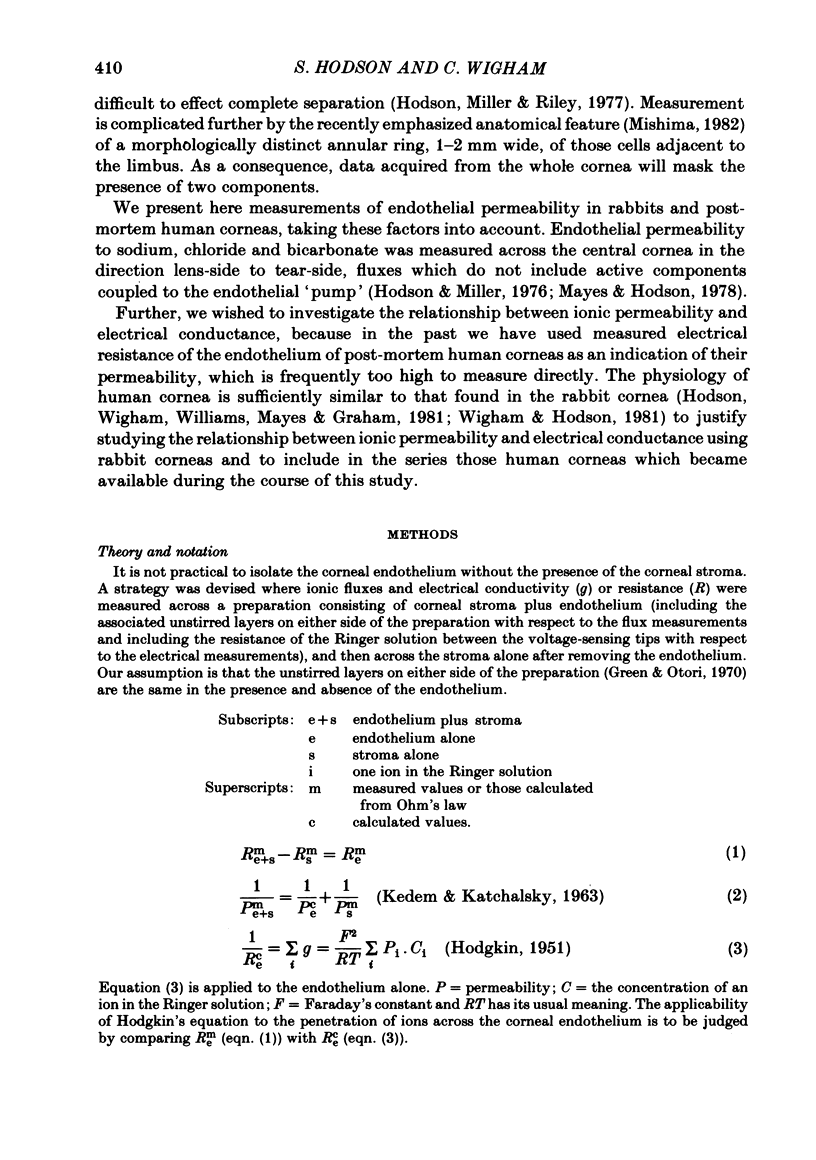
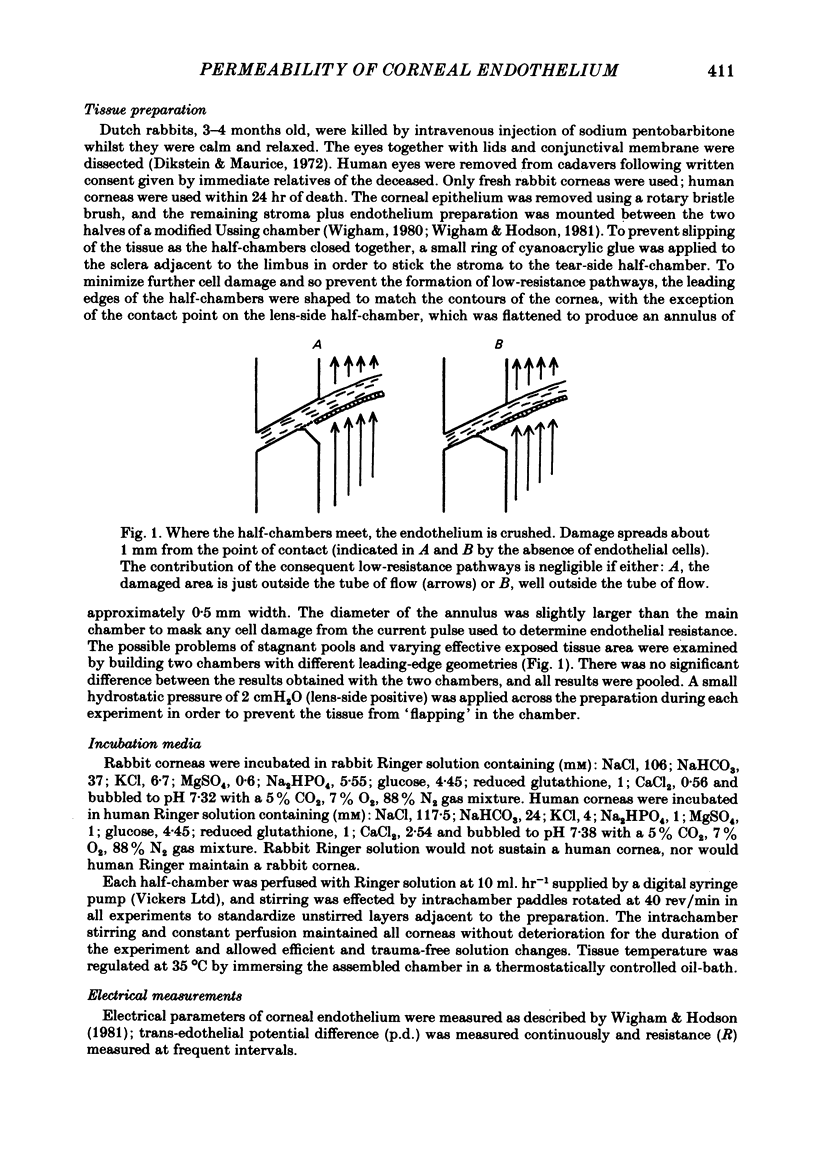
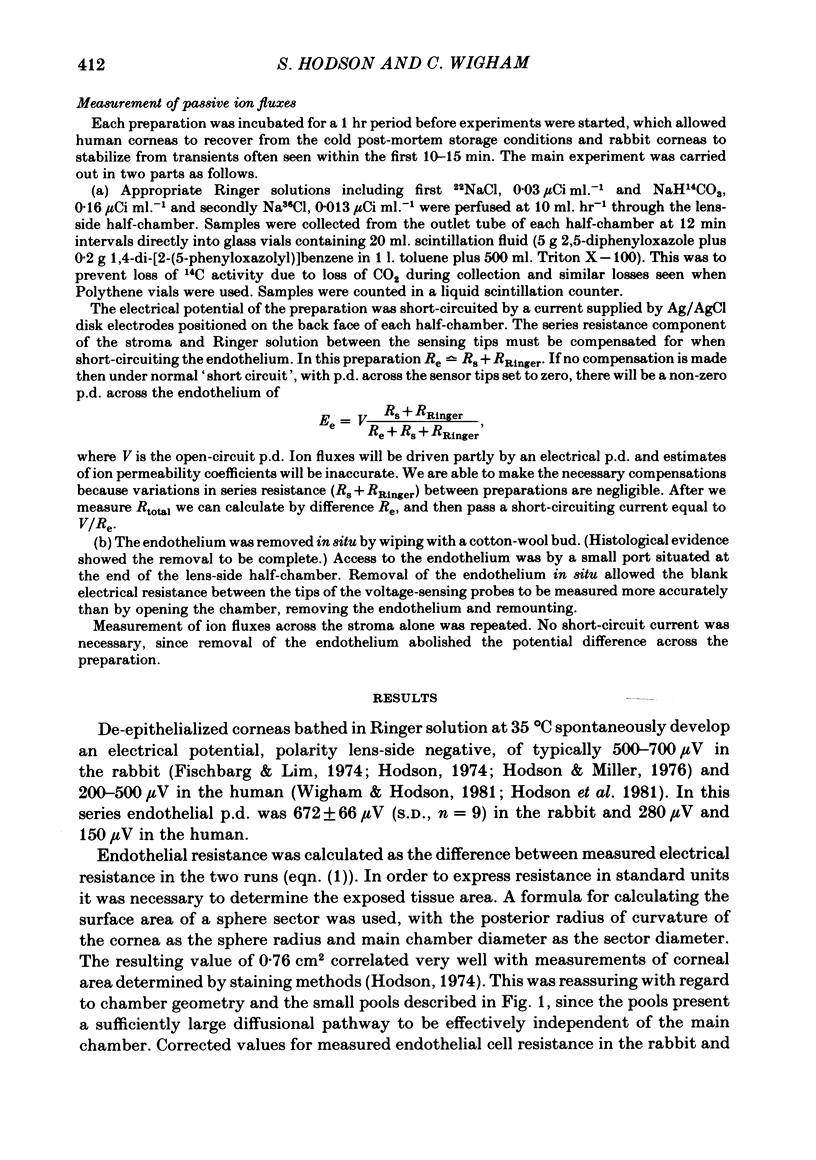
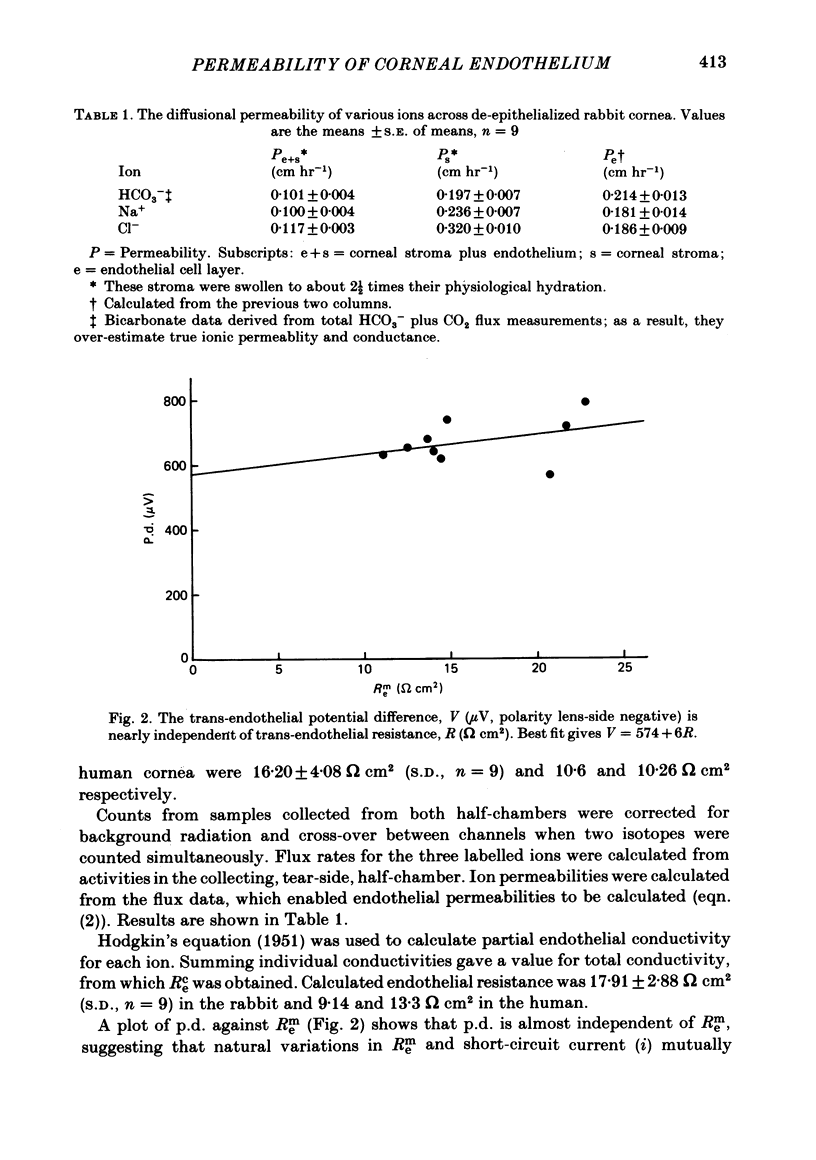
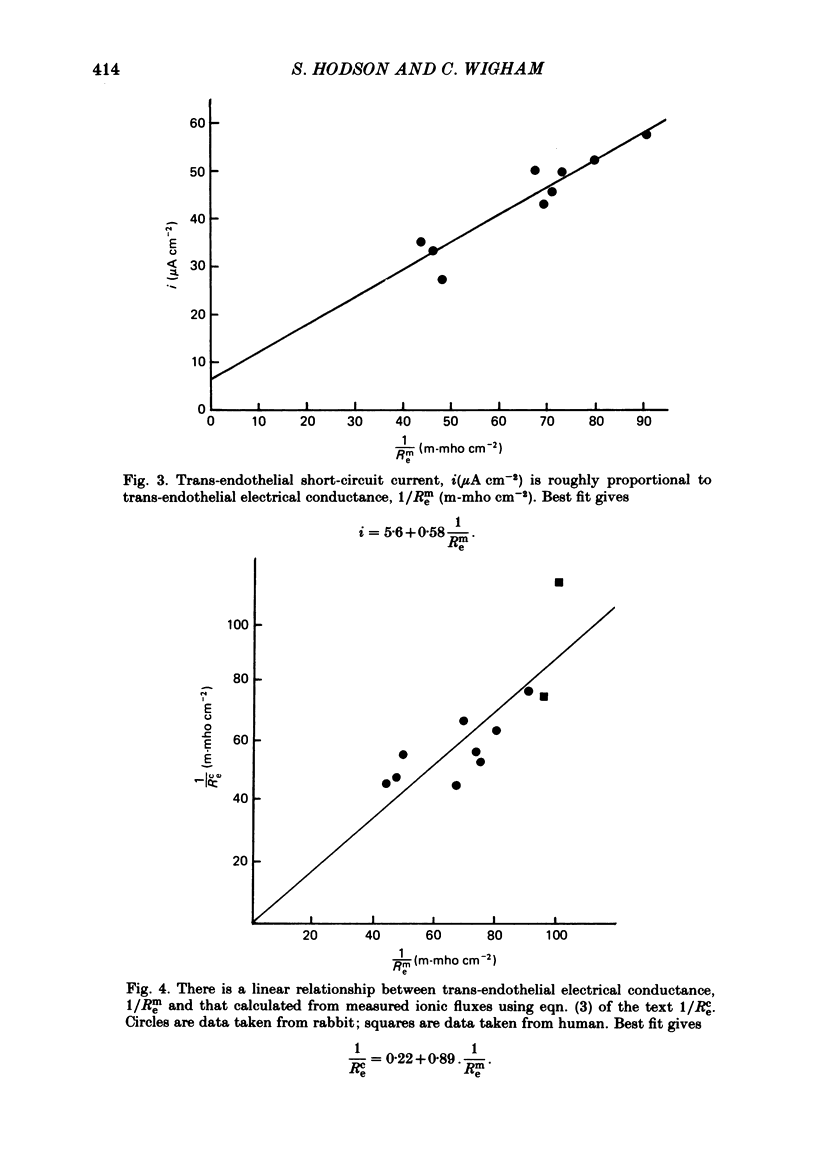
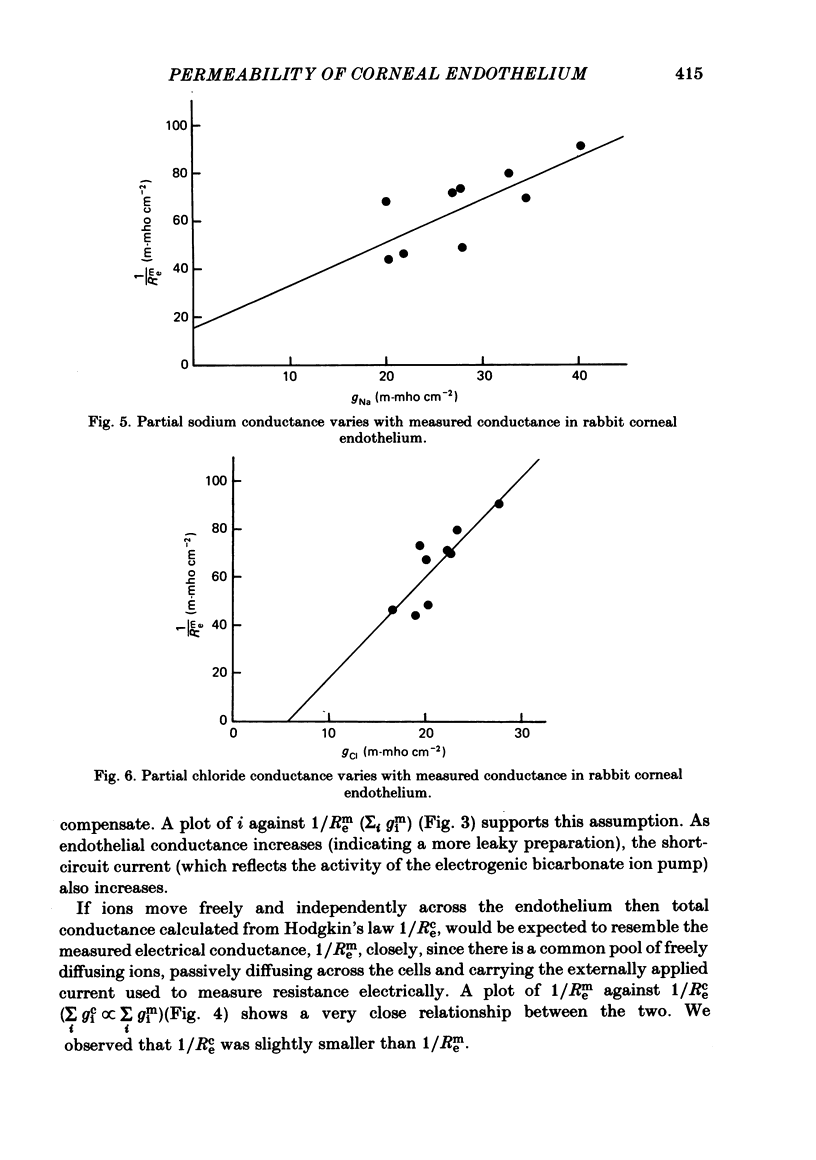
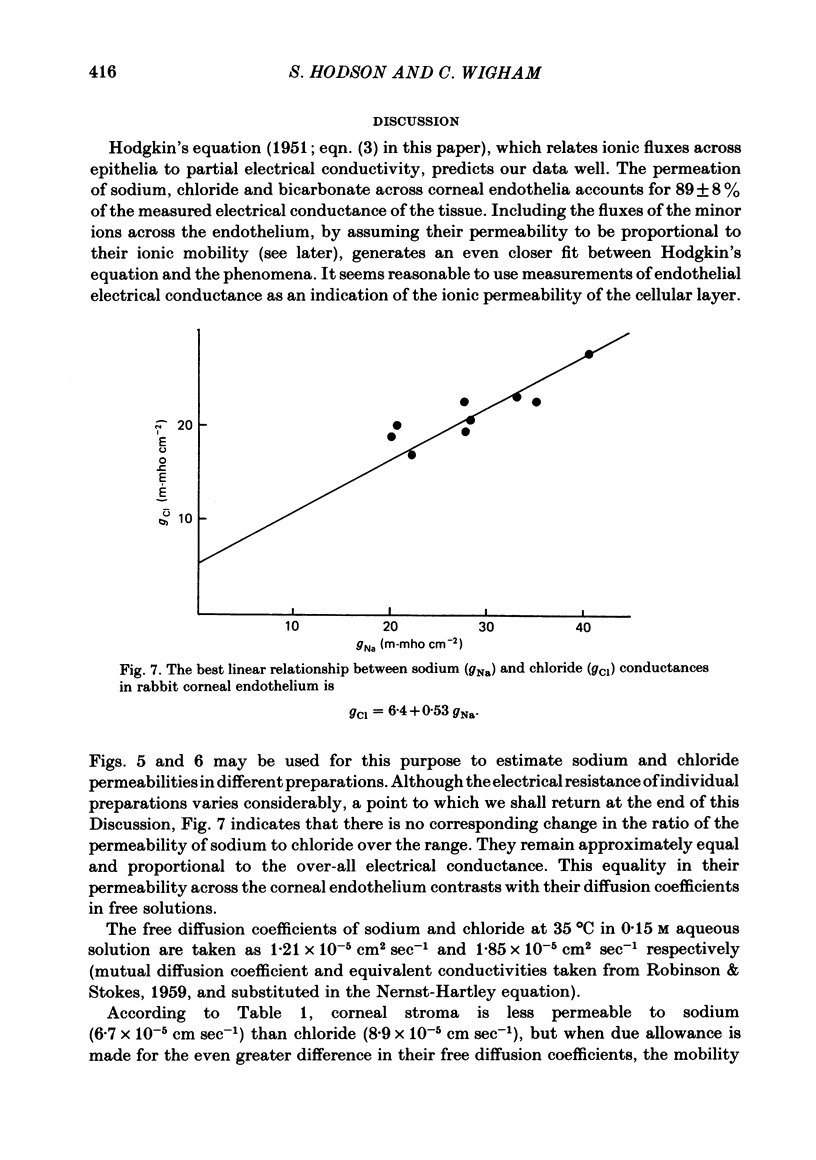
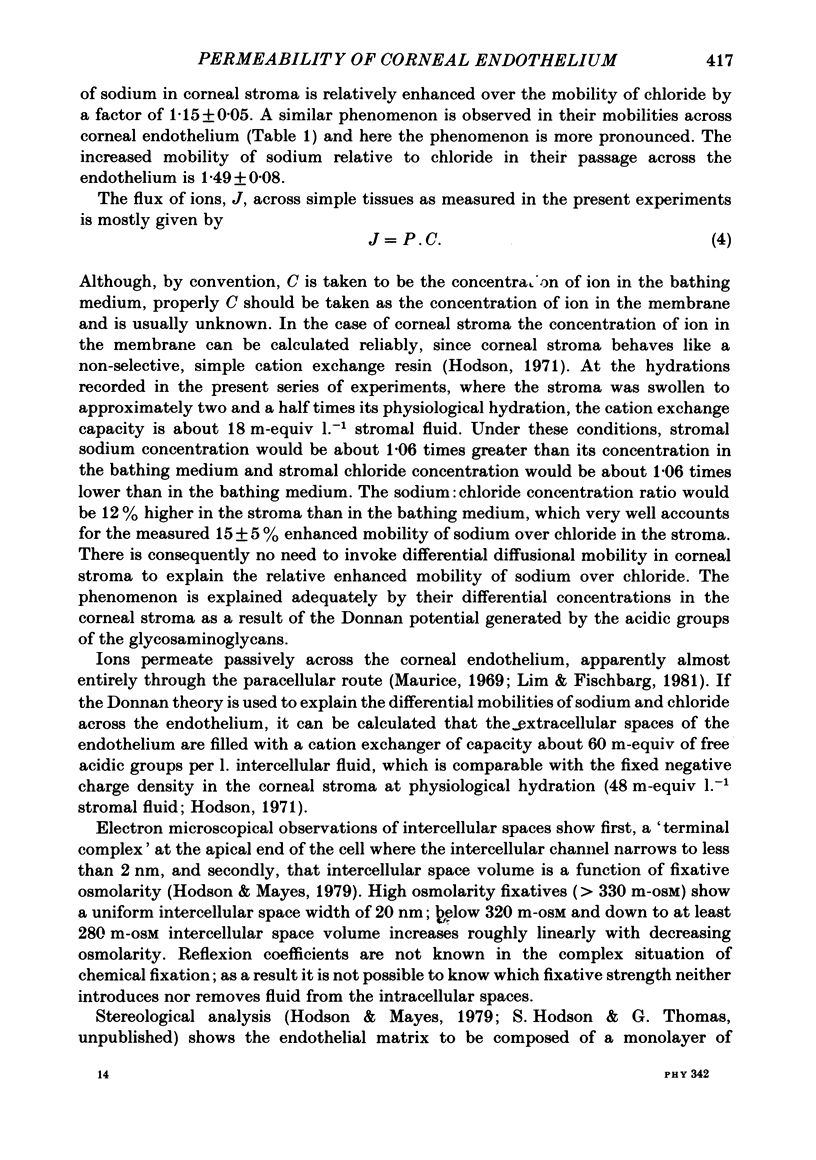
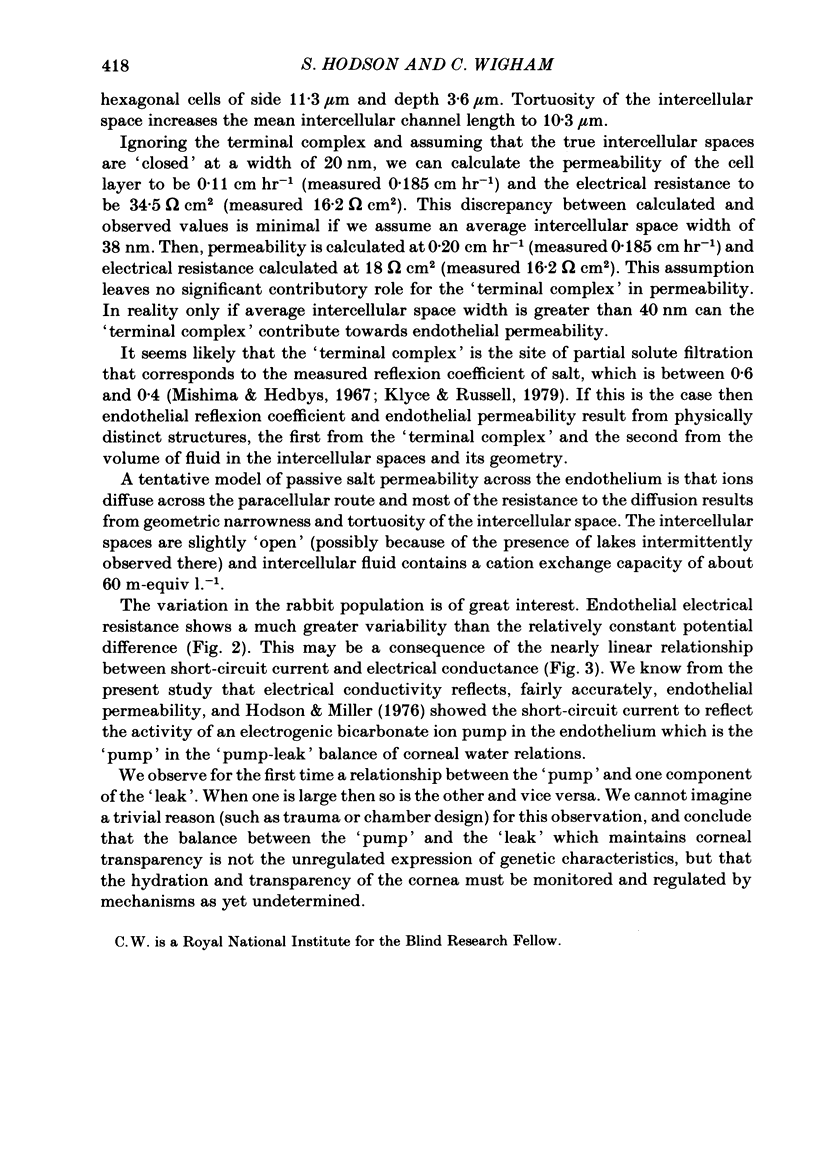
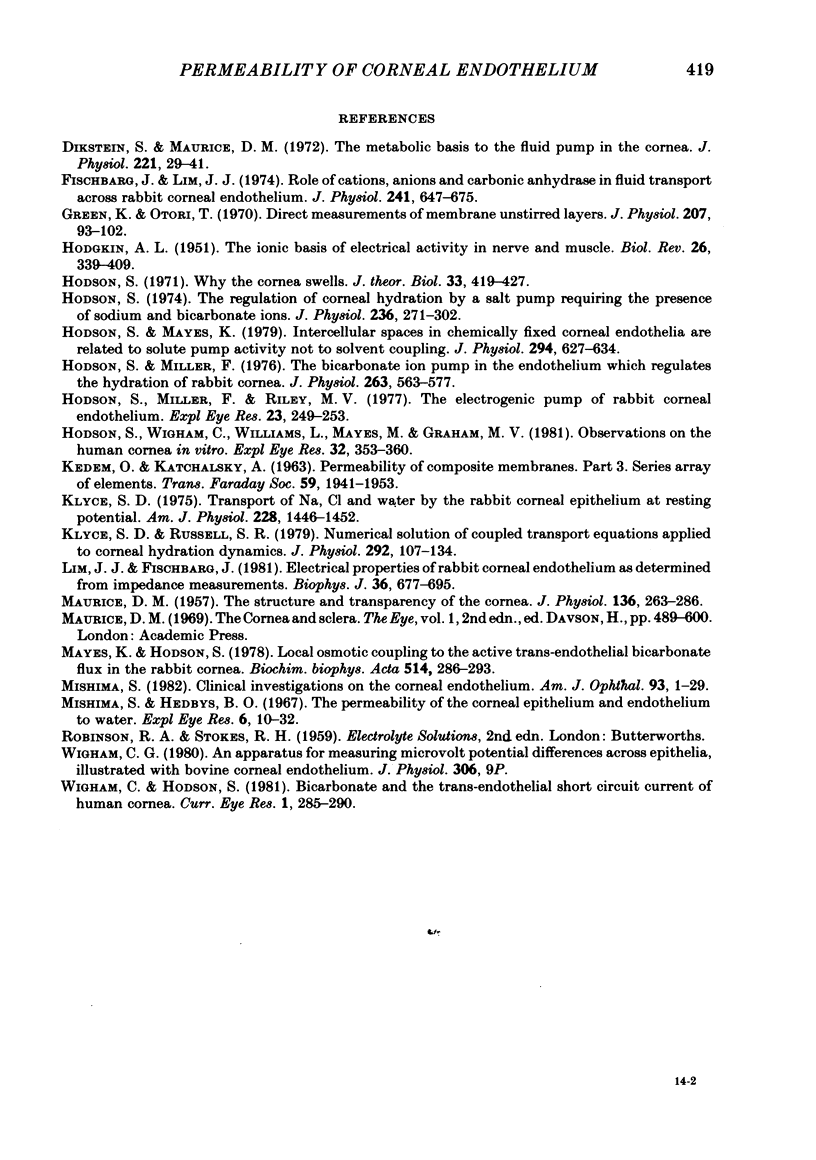
Selected References
These references are in PubMed. This may not be the complete list of references from this article.
- Dikstein S., Maurice D. M. The metabolic basis to the fluid pump in the cornea. J Physiol. 1972 Feb;221(1):29–41. doi: 10.1113/jphysiol.1972.sp009736. [DOI] [PMC free article] [PubMed] [Google Scholar]
- Fischbarg J., Lim J. J. Role of cations, anions and carbonic anhydrase in fluid transport across rabbit corneal endothelium. J Physiol. 1974 Sep;241(3):647–675. doi: 10.1113/jphysiol.1974.sp010676. [DOI] [PMC free article] [PubMed] [Google Scholar]
- Green K., Otori T. Direct measurements of membrane unstirred layers. J Physiol. 1970 Mar;207(1):93–102. doi: 10.1113/jphysiol.1970.sp009050. [DOI] [PMC free article] [PubMed] [Google Scholar]
- Hodson S., Mayes K. R. Intercellular spaces in chemically fixed corneal endothelia are related to solute pump activity not to solvent coupling. J Physiol. 1979 Sep;294:627–634. doi: 10.1113/jphysiol.1979.sp012950. [DOI] [PMC free article] [PubMed] [Google Scholar]
- Hodson S., Miller F., Riley M. The electrogenic pump of rabbit corneal endothelium. Exp Eye Res. 1977 Mar;24(3):249–253. doi: 10.1016/0014-4835(77)90162-2. [DOI] [PubMed] [Google Scholar]
- Hodson S., Miller F. The bicarbonate ion pump in the endothelium which regulates the hydration of rabbit cornea. J Physiol. 1976 Dec;263(3):563–577. doi: 10.1113/jphysiol.1976.sp011645. [DOI] [PMC free article] [PubMed] [Google Scholar]
- Hodson S. The regulation of corneal hydration by a salt pump requiring the presence of sodium and bicarbonate ions. J Physiol. 1974 Jan;236(2):271–302. doi: 10.1113/jphysiol.1974.sp010435. [DOI] [PMC free article] [PubMed] [Google Scholar]
- Hodson S. Why the cornea swells. J Theor Biol. 1971 Dec;33(3):419–427. doi: 10.1016/0022-5193(71)90090-7. [DOI] [PubMed] [Google Scholar]
- Hodson S., Wigham C., Williams L., Mayes K. R., Graham M. V. Observation on the human cornea in vitro. Exp Eye Res. 1981 Mar;32(3):353–360. doi: 10.1016/0014-4835(81)90040-3. [DOI] [PubMed] [Google Scholar]
- Klyce S. D., Russell S. R. Numerical solution of coupled transport equations applied to corneal hydration dynamics. J Physiol. 1979 Jul;292:107–134. doi: 10.1113/jphysiol.1979.sp012841. [DOI] [PMC free article] [PubMed] [Google Scholar]
- Klyce S. D. Transport of Na, Cl, and water by the rabbit corneal epithelium at resting potential. Am J Physiol. 1975 May;228(5):1446–1452. doi: 10.1152/ajplegacy.1975.228.5.1446. [DOI] [PubMed] [Google Scholar]
- Lim J. J., Fischbarg J. Electrical properties of rabbit corneal endothelium as determined from impedance measurements. Biophys J. 1981 Dec;36(3):677–695. doi: 10.1016/S0006-3495(81)84758-3. [DOI] [PMC free article] [PubMed] [Google Scholar]
- MAURICE D. M. The structure and transparency of the cornea. J Physiol. 1957 Apr 30;136(2):263–286. doi: 10.1113/jphysiol.1957.sp005758. [DOI] [PMC free article] [PubMed] [Google Scholar]
- Mayes K. R., Hodson S. Local osmotic coupling to the active trans-endothelial bicarbonate flux in the rabbit cornea. Biochim Biophys Acta. 1978 Dec 19;514(2):286–293. doi: 10.1016/0005-2736(78)90299-7. [DOI] [PubMed] [Google Scholar]
- Mishima S. Clinical investigations on the corneal endothelium-XXXVIII Edward Jackson Memorial Lecture. Am J Ophthalmol. 1982 Jan;93(1):1–29. doi: 10.1016/0002-9394(82)90693-6. [DOI] [PubMed] [Google Scholar]
- Mishima S., Hedbys B. O. The permeability of the corneal epithelium and endothelium to water. Exp Eye Res. 1967 Jan;6(1):10–32. doi: 10.1016/s0014-4835(67)80049-6. [DOI] [PubMed] [Google Scholar]
- Wigham C., Hodson S. Bicarbonate and the trans-endothelial short circuit current of human cornea. Curr Eye Res. 1981;1(5):285–290. doi: 10.3109/02713688108999449. [DOI] [PubMed] [Google Scholar]


